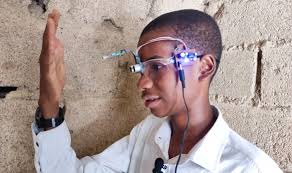Mobile Money in Refugee Communities: Challenges & Prospects

War, violence, and natural catastrophes such as floods and earthquakes have forced thousands of people throughout West Africa from their homes. With no work or financial accounts, many people rely on NGOs and mobile money to get by. They receive aid, transmit money, and pay bills using a simple phone. However, while mobile money offers hope, it is not without obstacles. Let us explore the issues and potential of mobile money in refugee populations.
How can technology help in an emergency?
Mobile money has been addressing the need for convenience and financial access for decades, especially within refugee communities in remote areas. According to the GSMA State of the Industry Report 2025, over 45% of users in Kenya rely on mobile money for savings, underscoring its vital role in financial inclusion. In refugee camps across Kenya, mobile money has become a source of stability and hope.
For refugees escaping conflict and suffering in Somalia, South Sudan, and surrounding countries, accessing traditional banks is practically impossible. They are barred from participating in traditional banking systems because they lack official identification.
Refugees, on the other hand, can open mobile money accounts with just a phone and receive monthly cash transfers from humanitarian groups directly into digital wallets linked to their SIM cards. They can now purchase food, medicine, and other necessities without ever going to a bank or carrying currency.
Additionally, mobile money enables refugees to participate more actively in local economies, allowing them to make decisions even while they are refugees. While obstacles persist, mobile money is not only increasing financial access but also laying a fresh foundation for hope and resilience in Kenya and other African refugee communities.
How Refugees Use Mobile Money—and Challenges That Stand in Their Way
Let’s examine the ways that mobile money is used in refugee settlements and the obstacles that stop its adoption.
Regulatory and Identification Barriers
Regulation is one of the hurdles to mobile money in refugee communities. Refugees, particularly those escaping conflict, enter host nations without valid identification documents such as passports or national identity cards.
Before 2019, refugees in Uganda were banned from registering SIM cards in their names, which prevented them from using mobile wallets. A policy change established a standard for flexibility in regulation by allowing mobile network companies to accept IDs issued by the UNHCR. However, many other nations with high refugee populations lack comparable reforms.
Additionally, the absence of standardized regulations among governments, telecom companies, and charity groups frequently results in uneven application, causing ambiguity and obstacles for refugees wishing to use digital financial services.
Infrastructure and Agent Network Gaps
Mobile money depends heavily on a robust telecommunications and agent network infrastructure. However, many refugee camps and host communities lack consistent network coverage, electricity, or proximity to agents who can perform cash-in/cash-out transactions.
For example, in the Bidi Bidi settlement in Uganda, one of the largest in the world, residents reported traveling over 5 kilometers to reach the nearest agent.
Even when agents are available, service fees and stockouts of e-money can reduce reliability, prompting them to revert to informal systems or cash.
Trust and Cultural Resistance
Building trust in digital platforms is another major challenge. For many refugees, financial systems have a history of inaccessibility and raise concerns about fraud, loss of funds, and misuse of personal information.
In some communities, women are discouraged from using phones or may rely on their husbands for financial transactions, further limiting their financial independence.
The Prospects of Mobile Money for Refugees
Despite these obstacles, several encouraging developments suggest a more inclusive mobile money future for refugees:
Innovative Humanitarian Initiatives: The World Food Programme and UNHCR have pioneered digital cash transfers in countries like Lebanon and Somalia. In the Jordanian camp, mobile money wallets powered by IrisGuard allow beneficiaries to withdraw aid via biometric authentication, bypassing ID barriers.
Private Sector Engagement: Network providers like MTN and Airtel formed partnerships with humanitarian agencies to create refugee-friendly financial products.
Digital Skills Empowerment: NGOs are launching digital literacy and financial education programs based on refugee needs. These programs explain mobile banking and instill confidence in the refugees.
Takeaway
Think about attempting to access mobile money without a legitimate ID or stable internet. This is the reality for many refugees. While mobile money continues to grow rapidly, these restrictions prevent it from reaching all of its potential in refugee populations. Governments should simplify rules to provide more opportunities. Tech startups can create products that work even with weak connections. What about supporters? They must continue to invest in the basics, such as internet access and digital skills.





